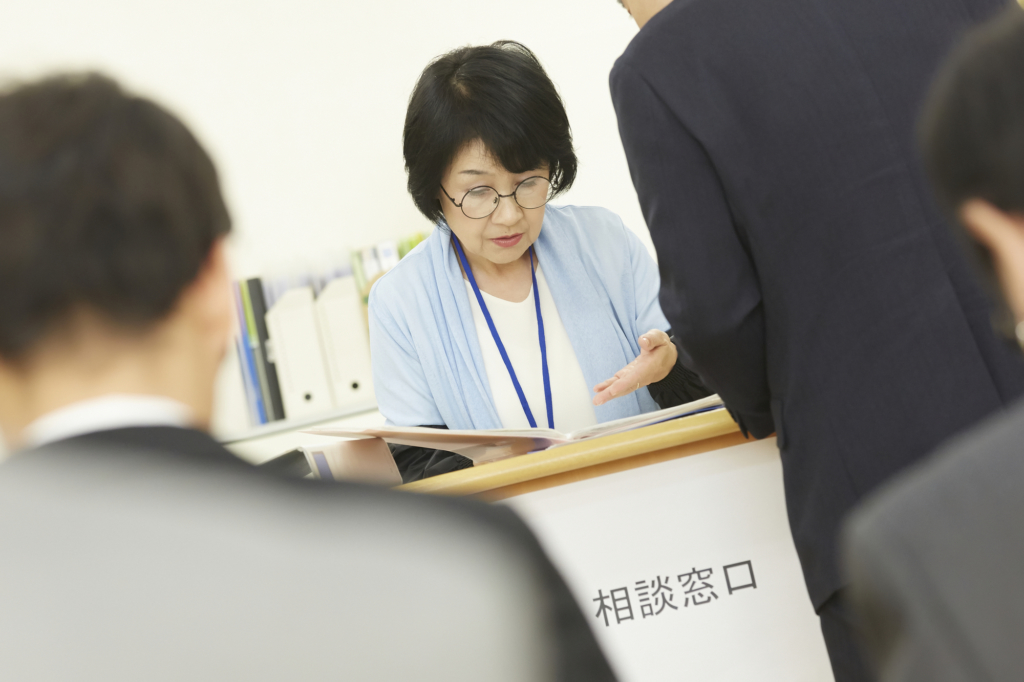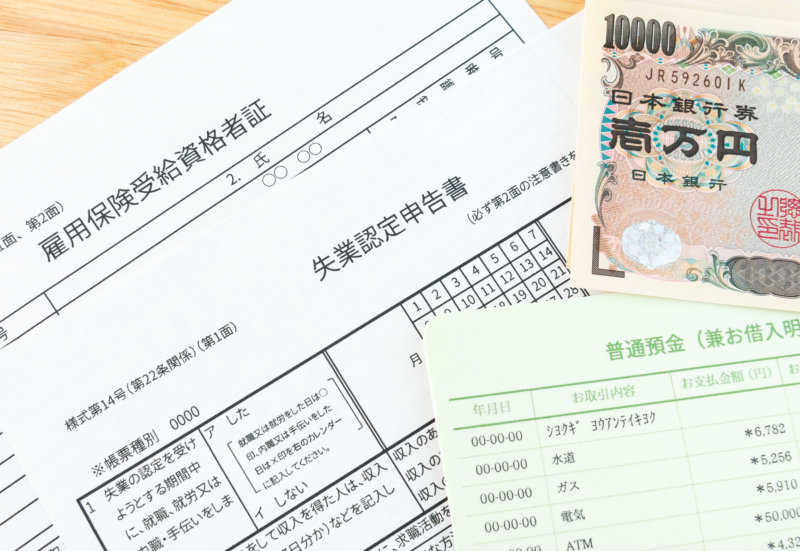Many international residents working in Japan have experienced bitter financial hardship after losing their jobs. Whether your company went bankrupt or you quit, you shouldn’t hesitate to take advantage of Japan’s public insurance systems by filing for unemployment insurance, also known as “unemployment allowance.” In this article, we’ll discuss how to qualify and apply for this insurance, along with things to be wary of before diving in.
What Is Unemployment Insurance?

Unemployment insurance (失業保険) is a part of Japan’s public insurance system designed to support residents in their everyday lives. Its official name is “employment insurance” (雇用保険), and it allows those who lost or quit their job to collect unemployment benefits (失業手当), officially called “basic allowance” (基本手当).
The goal of benefits like these is to provide insured people who find themselves unemployed with financial stability and allow them to find new work as quickly as possible.
All employers are legally obligated to provide eligible employees with employment insurance. Whether you’re Japanese or not, as long as you work in Japan, this applies to you. However, there are some conditions that need to be met before collecting benefits.
Who Can Receive Unemployment Insurance?

Both Japanese citizens and foreign residents in Japan can receive unemployment benefits if they meet the right conditions and follow the appropriate steps. It ultimately depends on two factors:
- Whether you were covered by employment insurance for at least 12 months in the 2-year period prior to losing your job. One “month” is defined as working at least 11 days or being paid for 80 hours of work within a 30-day period.
- The state of your unemployment.
Those who worked less than 20 hours a week or students working part-time attending classes during the day cannot be enrolled in employment insurance and therefore cannot receive unemployment benefits. Furthermore, Employment Insurance Law defines “the unemployed” as “people who have the desire and ability to work but cannot find employment.” This means that those who simply collect benefits and are not job-hunting (i.e. they lack the “desire” to work) or foreigners without a work visa cannot collect unemployment benefits. This also applies to foreigners working part-time or those on a working holiday visa.
Unemployment insurance also does not cover those who can’t work due to illness, injury, pregnancy, childbirth, or child-rearing.
Exactly how long you will be able to collect unemployment benefits will depend on the reason for losing your job along with your age and how long you were enrolled in the employment insurance program.
If you quit on your own accord (desire to change jobs, start a business, or for other reasons within your control), the longest you can collect unemployment benefits for is 150 days. If you lost your job due to factors beyond your control (company bankruptcy, restructuring, employment termination), then you can collect benefits for up to 330 days.
Restrictions on Unemployment Insurance
If you lost your job due to factors beyond your control and filed for unemployment benefits at Hello Work (the name of Japan’s Employment Service Center), then you should be able to start collecting after a one week “waiting period.” If, however, you quit of your own accord or were dismissed with discipline, you’ll have to go through a 3-month-long “payment restriction period.”
If you have a working residence status and lose your job, then you should be permitted to remain in Japan for the duration of the period of stay originally granted. However, if you do nothing for three months after becoming unemployed, the law will consider you in breach of the conditions of your residence (i.e. working in Japan) and will revoke your status. Additionally, a prolonged period of no employment can negatively affect your next work visa application, so even if you file for unemployment insurance, you should still try to find another job within three months.
How to File for Unemployment Insurance

You can file for unemployment insurance at your local Hello Work. Here’s what you’ll need:
- Statement of Unemployment for Insured Party issued by your former employer (雇用保険被保険者離職票)
- Residence card or certificate of alien registration
- Employment insurance card issued by your former employer (雇用保険被保険者証)
- 2 ID photos (3 cm x 2.5 cm)
- Personal seal (if you have one)
- Your bankbook or cash card.
The process of filing for unemployment insurance typically looks like the following:
Filing for Unemployment Insurance

Apply for a Job at Hello Work
Fill out a job application form at your local Hello Work and file it together with all the necessary documents for collecting unemployment insurance. If Hello Work determines that everything is in order, you will be deemed eligible for unemployment benefits.
Attend the Mandatory Briefing
Once your eligibility for unemployment benefits has been determined, you’ll receive information on a briefing session. Here you will receive your Employment Insurance Eligibility Certificate (雇用保険受給資格者証) and Unemployment Certification Report (失業認定申告書). If you don’t attend the briefing, you will not be able to collect unemployment benefits.
Receive Your Unemployment Certification
In order to continue receiving unemployment benefits, you’ll need to update your unemployment certification by visiting Hello Work on a designated date once every four weeks (28 days). You will be issued the certification if you can document at least two job-hunting attempts each month. This can be done by making use of vocational counseling or job placement services at Hello Work (before the designated certification issuing date), or by actively searching on your own.
Receive Your Benefits
Benefits will be deposited into your chosen bank account within five business days of receiving unemployment certification. This process will then continue until you find a job or your insurance runs out. As a general rule, you’ll be able to receive benefits for up to one year counting from the day after losing your job. Even if you’re still within the allotted number of days for collecting unemployment benefits (150 or 330, depending on the circumstances) your benefits will no longer be paid after one year is up.
While collecting unemployment insurance, you will also have to report every instance of work, even if it’s just part-time. Additionally, falsifying job-hunting attempts on your unemployment certification report in order to receive benefits is considered fraud under Japanese law, even if you never actually receive the money. As a result, you’ll not only lose the right to collect unemployment insurance, but will have to return all the money you’ve collected plus a fine equal to twice the amount received. An annual penalty of 5% will also be imposed until it’s all repaid and you may even be prosecuted, so please only write the truth on your report.
Things Foreigners Should Watch Out for After Losing Their Job
In this section, we’ll discuss what foreigners who’ve lost their jobs should do and watch out for. If you’re a foreign resident in Japan with a working visa who has quit your job, you’ll need to file a Notification Concerning Contracting Organization (契約機関に関する届出) at your local immigration bureau within 14 days of resigning. This is completely unrelated to a change or renewal of residence status, so even if your period of stay isn’t up, you’ll need to fulfil this step within the designated time frame. You can obtain this document online or at your local immigration bureau.
Additionally, a foreigner with a working visa who quits or loses their job is generally forbidden from part-time work while unemployed. A visa (status of residence) generally restricts a foreign worker to a specific kind of work and industry, making it illegal to engage in a job outside that scope. You can’t simply brush it off as a simple, no-frills part-time job – it’s still illegal work, and if discovered, may constitute a “disqualifying condition” for renewing or changing your status of residence. In some cases, it may even result in the revoking of your visa and deportation.
An Organization You Need to Know About!
Many who have trouble finding employment worry about sourcing money between the loss of their job and unemployment benefits kicking in. If you ever find yourself in this situation, please turn to the Employment Service Center for Foreigners, whose job it is to offer support and help you find a new job.
The Employment Service for Foreigners is a public institution offering job-hunting and career change support for foreigners in Japan with working residence statuses. Facilities are based in Tokyo, Nagoya, Osaka, and Fukuoka. Their services include providing job information, employment support and guidance, practice interviews, and personal counseling. They can also assist with things like changing your status of residence.
The Employment Service for Foreigners has English, Chinese, Spanish, and Portuguese interpreters to offer employment support and advice in one’s native language (the availability of specific interpreters will differ depending on the facility and time). The service has been specially designed with foreigners in mind, so if you’re having trouble finding a job or with something else, don’t be afraid to pay them a visit!
Don’t Get Caught Off Guard – Get to Know Japan’s Welfare and Insurance Systems
We hope this guide to Japan’s unemployment insurance system has been useful! Keep in mind that, as previously mentioned, foreigners with work visas who quit their job can receive unemployment benefits, but there are a lot of pitfalls along the way to keep an eye on. So if you want to quit your job, first make sure that you can quickly find a new one without having to rely on unemployment benefits. Of course, we understand the stresses that come with this, which is why we strongly recommend visiting Hello Work and the Employment Service for Foreigners before you start to panic!
If you want to give feedback on any of our articles, you have an idea that you’d really like to see come to life, or you just have a question on Japan, hit us up on our Facebook!
The information in this article is accurate at the time of publication.

